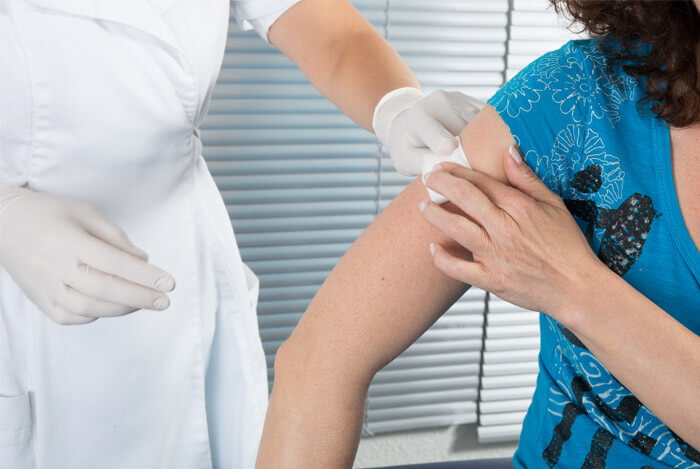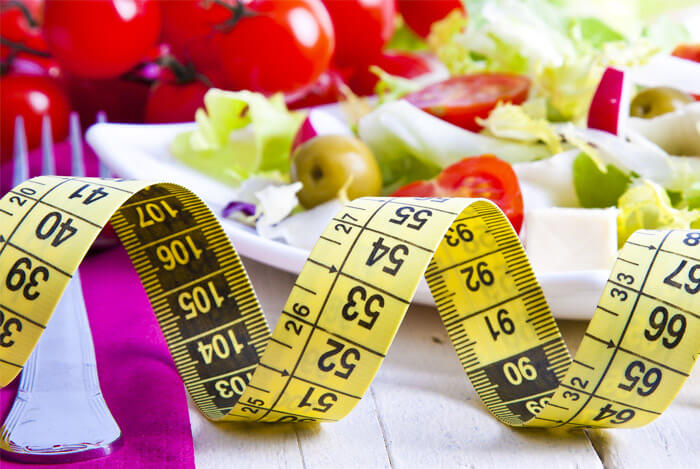Who wouldn’t want to lose weight without even trying?
Imagine waking up at the end of a 30 days of dieting and finding that you lost nearly 30 pounds by simply eating less, without suffering through the agony of starving yourself the whole time. Your friends and family are shocked by your success, and so are you.
You didn’t even have to exercise.
Sounds a little too good to be true, right? If there were a diet plan out there that could be so effective, wouldn’t everyone know about it?
According to Kevin Trudeau, author of the 2007 book The Weight Loss Cure ‘They’ Don’t Want You to Know About, and Dr. Sheri L. Emma, author of Dr. Emma’s HCG Diet Guide, that diet exists, and you should be taking advantage of it.
It’s called the hCG diet, and it’s been around for half a century. Only it’s been buried under controversy since the 1960s. Now, it’s experiencing a resurgence of popularity.
So, let’s dig in a little and find out what’s actually going on in the hCG diet.
- What Is the hCG Diet Plan?
- The Original hCG Diet Protocol
- How Can This Work?
- Does It Actually Work?
- The Studies
- The Dangers of the hCG Diet
Table of Contents
+What Is the hCG Diet Plan?

According to the official website, the hCG diet is the “ultimate weight loss program” that naturally stimulates the metabolism and leads to “a muscle-toned body that sheds weight at a reported average of 1 pound per day”. They claim the purpose of the hCG diet is to get people “truly healthy, not just thin”. Sounds good so far.
The whole thing was developed in the 1950s by a British endocrinologist named A. T. W. Simeons. He claimed to have discovered that by administering hCG, or human chorionic gonadotropin, his patients could significantly reduce stubborn body fat without daily exercise.
In his book Pounds and Inches, Simeons put two decades of research into the idea that a regimen of hCG treatments and a reduction diet could program the hypothalamus to combat obesity by shedding fat instead of lean muscle tissue.
The Original hCG Diet Protocol

Over the decades since his initial work, there have been plenty of slight changes made to the hCG diet program, but most of the original protocol developed by Dr. Simeons has been kept intact.
First, there’s the hormone treatment with the option of injection or under-the-tongue drops. The second part of Simeons’s program is a reduction diet limiting calorie intake to around 500 calories a day after the third dose of hCG.
Pretty much the only thing you should be eating while on the hCG diet are:
- High-protein foods (lean, fat free meat: veal, chicken breast, lobster, crab, shrimp)
- Fresh veggies (a single low calorie vegetable with lunch and dinner: spinach, tomatoes, celery, onions, red radishes, cucumbers, asparagus, cabbage)
Absolutely no:
- Dairy
- Carbs – except for veggies, which are also carbs
That’s nothing entirely new when it comes to popular dieting. The Atkins Diet similarly recommends high proteins and avoiding sugar, although it allows for way more daily calories.
However, the diet has some other more interesting restrictions. No solid foods before lunch. Breakfast can only be black coffee or tea, without sugar or milk of course.
At 250 calories a meal, you’re pretty heavily limited. We’re talking about a few good bites of meat, a chunk of your choice of vegetable, and maybe a bread stick or a piece of Melba toast. Dieters can also afford to eat an apple, some strawberries, half a grapefruit, or an orange.
And no playing around with portion sizes. Dr. Simeons warns in Pounds and Inches, the “smallest error” can have “disastrous” results.
How Can This Work?

As soon as I read this, my first thought was: of course you’re going to lose weight if you’re only consuming 500 calories a day…but wouldn’t you be miserable?
According to Dr. Simeons, not at all. He claimed that with the hCG treatment, you’d avoid all that annoying hunger altogether, and have an enhanced mood overall. The hCG makes use of the excess body fat stored in “problem areas” in the body, allowing you to “feed” on your own body fat. The small amount of food you eat supposedly fights off the would-be inevitable hunger pangs.
Normally in such a hardcore reduction diet, people are merely seeking to lose pounds. What they don’t realize is that with those pounds go muscle. When they weigh themselves at the end of the diet, they’re satisfied by the amount of weight loss without realizing that a lot of what they lost was actually healthy muscle mass.
Proponents of the hCG diet claim the injection treatment allows your body to maintain its muscle mass while you diet. The hormones it helps to increase, namely testosterone, create an anabolic state (allowing muscle to build) which counteracts the opposite state, the catabolic (which causes muscle to break down). The hormone receptors in your muscle fibers then respond to the increased hormone levels.
Ideally, the hCG treatment should last around 26 days, though in some cases it can last as long as 43 days. Any more than that and the patient might develop a resistance to the treatment. Before a normal diet can be resumed, the patient is supposed to allow 3 days without any hormone treatment while maintaining the reduction diet.
Okay. So far, it all sounds pretty promising. So, why the controversy?
Does It Actually Work?

Let’s talk about what hCG actually does.
HCG itself is approved by the Food and Drug Administration. Except, its approval has nothing to do with weight loss. Instead, it has only ever been approved to treat infertility in men and women.
Women with low hormone levels can take hCG to stimulate ovulation. Men with low testosterone can take hCG treatments to raise their sperm counts.
HCG treatment for weight loss is now considered homeopathic and completely ineffective by the FDA. They consider its sale for weight loss purposes to be fraudulent.
The Studies

Dr. Simeon was convinced his treatment process worked; unfortunately, he was the only one who ever demonstrated any results. No other clinical trial has ever been able to reproduce his findings.
Research studies have been performed several times since the 1960s, but are rarely, if ever, mentioned in the books and articles written by proponents of the hCG diet. I suspect a lot of that has to do with the money made by proponents of the treatment, $495 on average for the 26 day course. Snake oil salesmen rarely talk about the evidence supporting their claims.
Here are the results of a 1963 study:
Twenty women with “severe chronic obesity” were split into 2 groups, one receiving daily shots of hCG, the other receiving a placebo of saline solution. The women were restricted to two meals a day at 550 daily calories. They were allowed unlimited intake of water, tea, or coffee without sugar. After 45 days, the women “showed a uniform average weight loss of 20 pounds”. There was no difference between the weight loss of the women who received the hCG and those who did not. The study confirmed the conclusion “that diet, rather than the action of chorionic gonadotropin, is the important factor in Simeons’ program”.
Then, a study in 1976 tried to retest the hypothesis of the efficacy of the hCG diet:
Fifty-one women between the ages of 18 and 60 participated in the double-blind, randomized study over the course of 32 days. Each patient was given the same diet, was weighed daily, and was counseled by investigators who gave the hCG hormone injections. Twenty-five women were given the hCG while 26 were given placebo. “There was no statistically significant difference in the means of the two groups in number of injections received, weight loss, percent of weight loss, hip and waist circumference, weight loss per injections, or in hunger ratings”.
These studies concluded pretty decisively that hCG has nothing to do with enhancing the effectiveness of such an extreme reduction diet. Not only did the women taking it lose no less weight than the women taking placebo, they were also just as hungry.
Since then, the FDA has labeled hCG treatment for weight loss as illegal. It can’t be purchased over the counter and those who sell it for weight loss purposes are literally breaking the law.
Pieter Cohen, an assistant professor of Harvard Medical School says: “It’s reckless, irresponsible, and completely irrational. Can you lose weight on it? Of course, but that’s mainly because you’re hardly consuming any calories. And any benefit is not going to last”.
The Dangers of the hCG Diet

The hCG hormone itself isn’t the only problem. Like I mentioned before, it’s an approved treatment for infertility. Its list of side effects does sound a little scary: headaches, cramps, constipation, depression, male breast enlargement, infection, and blood clots. Though these complications are relatively rare in most cases. The real danger lies in the diet.
Everywhere I looked, I found page after page of doctors and experts warning people about the hCG diet. They all said basically the same thing, stay away from it.
Odds are, once you get off the diet and after your hormone treatment has ended, you’ll end up eating everything in sight to make up for the extreme reduction in calorie intake.
While every person’s body is different, eating only 500 calories a day, as the hCG diet prescribes, is like eating a single meal a day. A small meal.
That seems like an awful lot of evidence stacked against the hCG diet. Of course, you can draw your own conclusions, but any time the placebo is just as effective as the actual treatment, you’re more than likely wasting your time and money seeking actual results.
It’s important to note that dieting itself, when done appropriately and carefully (not starving yourself), is super effective at ensuring weight loss. Especially when coupled with regular exercise. There are lots of resources online and elsewhere where you can find out how to design your own calorie counting plan that works for your own body, and you won’t have to rely on questionable hormone treatments.
Before you go looking for some get-slim-quick scheme to burn fat and get in the shape you want to see yourself in, take the time to figure out what evidence supported diet is best for you.










